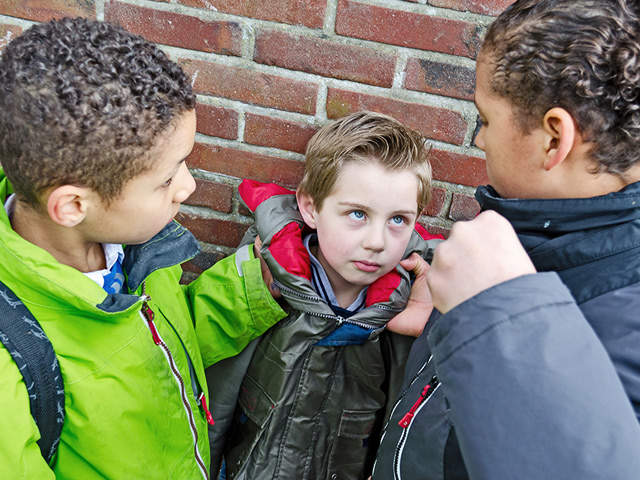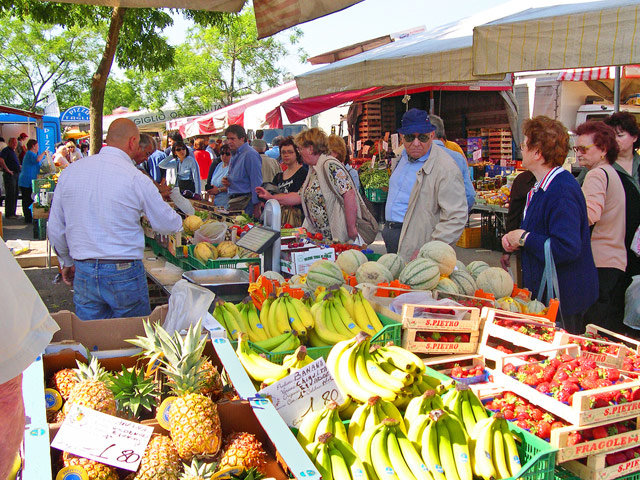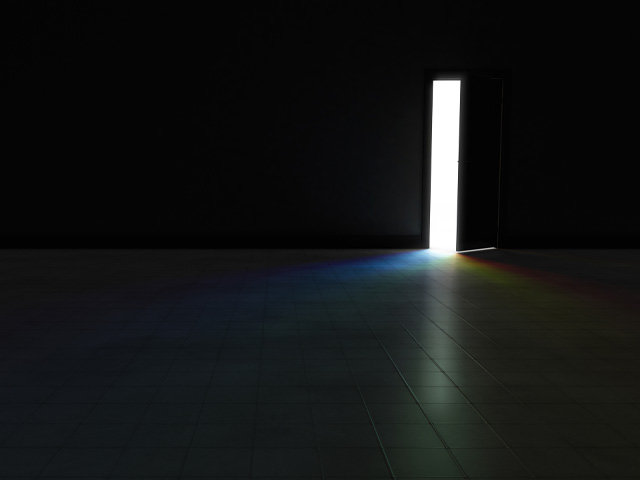I'm doing, I'm playing... (B2)
Present continuous tense (422)
Přítomný čas průběhový
Na Landigo se dnes zaměříme na pokročilejší použití přítomného průběhového času.
Další související lekce:
Have you heard that Rebecca is getting married next week?
| Naplánovaná budoucnost: |
|
She's getting married next week.
|


Nejdříve si připomeňme základní použití přítomného času průběhového (present continuous tense) – často vyjadřuje, že se něco právě děje nebo se to děje kolem současnosti.




Pokročilejší použití přítomného času průběhového:
- Dočasné/výjimečné situace:
I'm staying at Patrick's for the time being.
- Postupné změny:
Our relationship is getting more serious. We're spending more and more time together.
- Činnosti pravidelně opakované v určitou dobu:
We're normally having lunch around one, why don't we talk at two o'clock?
- Stěžování si (v kombinaci s ALWAYS, ALL THE TIME...):
Patrick's always coming late. (= It annoys me that/I don't like that...)
- Naplánovaná budoucnost:
I'm meeting Patrick after lunch, we're going surfing.
- Vypravování (pozadí hlavních událostí):
Yesterday, I'm driving home at night when I notice this truck behind me.
Your brother's always showing off now. The more I know him, the more annoying he's getting.
| Stěžování si: |
He's always showing off.
|
| Postupná změna: |
He's getting more and more annoying.
|


Dočasné/výjimečné situace
Přítomný průběhový čas použijeme pro přechodné, netypické nebo výjimečné situace:
|
Do you still live with your ex? – Not anymore, I'm living in a hotel until I can find a flat to rent. (= a temporary thing)
|
|
Listen up, there has been a change. The ship is leaving at 6 am instead of 5 am. (= an unusual time)
|
|
Matt's currently filling in for the manager who is away on holiday (but when the manager returns, he'll go back to his old regular job).
|
|
These customers tend to be nice. For some reason they're being rather rude today.
|
I don't typically sleep much, but now that I'm training for the marathon, I'm sleeping nine to ten hours every single night.
| Přechodné: |
|
I'm training for the marathon.
|
|
I'm sleeping nine hours.
|


As our friends have some personal matters to deal with, we're looking after their dog.
| Výjimečné: |
We're looking after him now.
|
| Běžné: |
Our friends look after him normally.
|


I usually have to push Jimmy to do anything school related. However, this week, he's learning Spanish without me saying a word!
| Netypické: |
He's learning Spanish.
|
| Běžné: |
He learns Spanish.
|


Postupné změny
Pokud popisujeme, že se něco v průběhu času mění (vyvíjí, roste...), použijeme přítomný průběhový čas:
|
The bugs are growing at a remarkable rate.
|
|
I can feel it in my bones, things are getting better.
|
|
Europe is changing before our eyes.
|
|
The internet and digital technologies are transforming our world.
|
|
Less and less people are now using offline media.
|
Slowly but surely, you're getting better. If you keep it up, soon you'll be better than me.
| Postupná změna: |
|
You're getting better.
|
|
You're improving a lot.
|
|
You're becoming great.
|


Our business environment is rapidly changing, which creates additional challenges.
| Průběžná, dlouhotrvající změna: |
|
The environment is changing rapidly.
|


Činnosti pravidelně opakované v určitou dobu
Přítomný průběhový čas použijeme pro děj, který se pravidelně odehrává v určitou dobu:
|
We're normally having breakfast between seven and eight, why don't you ring me sometime after that?
|
|
Nine o'clock is a bit too late for dinner. I'm getting ready for bed then.
|
|
Whenever I chat to Molly, she's complaining about something.
|
|
The garbage is usually getting collected on Friday when I wake up. It's so noisy!
|
|
Can you pinpoint when this error started popping up or what you're usually doing when it pops up?
|
Opakovaný děj může být ohraničen časem (between seven and eight, nine o'clock...) nebo vedlejší větou (Whenever I chat to Molly; when I wake up...).
How about meeting at around 2 pm? – I'm usually playing soccer then, but I could meet up at 4 pm instead.
| Pravidelně se odehrává v určitou dobu: |
|
I'm playing soccer at 2 pm.
|


When Sarah gets home from work, we're often already having dinner.
| Pravidelně se odehrává v určitý moment: |
|
When she gets from work, we're having dinner.
|


Every time I look at you, you're staring at Jenny as if you were in love with her or something.
| Pokaždé se odehrává v určitý moment: |
|
Every time I look at you, you're staring at her.
|


Stěžování si
Pokud si chceme postěžovat na něco, co nám vadí, rozčiluje nás nebo nám leze na nervy, použijeme přítomný průběhový čas + ALWAYS, CONSTANTLY, CONTINUALLY, ALL THE TIME:
|
You're always buying new purses. (= It annoys me that/I don't like that...)
|
|
Binky's constantly escaping. You have to finally fix the fence!
|
|
They're both arriving late all the time.
|
ALWAYS, CONSTANTLY... se kromě průběhového času používá také s prostým časem. S prostým časem jde často o pouhé konstatování, zatímco s průběhovým časem vyjadřujeme negativní emoce:
| Konstatování | Stěžujeme si |
|---|---|
|
You always buy purses.
|
You're always buying purses.
|
|
He constantly escapes.
|
He's constantly escaping.
|
You're constantly interrupting me. Would you please stop it?
| Stěžujeme si: |
|
You're constantly interrupting me.
|


The children are always causing trouble, getting into fights, breaking windows, that sort of thing.
| Stěžujeme si: |
They're always causing trouble.
|
| Konstatování: |
They always cause trouble.
|


My fitness trainer is criticising me all the time. He thinks I'm lazy and don't stick to his plan.
| Stěžujeme si: |
He's criticising me all the time.
|
| Konstatování: |
He criticises me all the time.
|


Naplánovaná budoucnost
Přítomný průběhový čas použijeme pro budoucnost, která je pevně dohodnutá nebo naplánovaná, zejména pokud mluvíme o osobních plánech:
|
Are you playing golf this week? – I wasn't planning to but now that you've mentioned it I just might.
|
|
Jessie isn't working tomorrow, so we could all hang out.
|
|
Are you doing something tonight? –Yes, I'm meeting an old friend of mine.
|
Vyjádření budoucnosti pomocí přítomných časů se více věnujeme v samostatné lekci.
David has just called from the airport. He's arriving tomorrow morning at around 7 am.
| Pevný osobní plán: |
|
He's arriving at 7 am.
|


On Sunday, we're going to the market for fruit and veg. Do you need something?
| Pevný osobní plán: |
|
We're going to the market.
|


I'm staying in London for two more nights. I've already booked a room.
| Pevný osobní plán: |
I'm staying for two more nights.
|
| Úmysl: |
I'm going to stay for two more nights.
|


Vypravování (děje probíhající na pozadí hlavních událostí)
Pokud chceme vytvořit dojem právě se odehrávajícího děje a dramatičnosti, použijeme ve vyprávění (historek, vtipů...) přítomný čas. Průběhový čas popisuje obvykle delší děje nebo pozadí hlavních událostí:
|
I was on my way to the office by bus. The guy who's sitting next to me looks at me weirdly and gets off the bus...
|
|
In the series, the main hero, who's a waiter, is serving a customer one night. He hears an explosive argument at the next table...
|
|
Yesterday, I'm walking my dog on the riverside when suddenly a strange animal lands on the grass and starts running towads us...
|
Všimněte si, že hlavní děje popisuje prostý čas (looks, gets, hears...).
Yesterday, I'm relaxing on the beach and minding my own business, when all of a sudden some boy pours a bucket of water on me!
| Pozadí hlavních událostí: |
I'm relaxing and minding my own business.
|
| Hlavní události: |
He pours water on me!
|


I had the scariest experience with my friend the other day. We're working out in the gym, just two of us. Suddenly, the lights go out leaving us in total darkness. Then, the alarm goes off.
| Pozadí hlavních událostí: |
We're working out.
|
| Hlavní události: |
The lights go out. The alarm goes off.
|


Přítomný čas průběhový (present continuous tense) – shrnutí pokročilejšího použití:
- Dočasné/výjimečné situace
- Postupné změny
- Činnosti pravidelně opakované v určitou dobu
- Stěžování si
- Naplánovaná budoucnost
- Vypravování (pozadí hlavních událostí)
